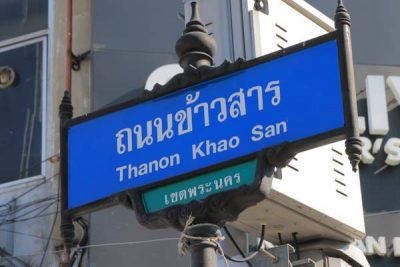
It’s not difficult to make a start on Thai and within a few months you can be asking questions and dishing out answers, for the sentence composition is fairly basic. Even as a visitor, memorising key commands (using a Romanised transliteration) is realistic. By learning numbers and a few basic interrogatives (question words) and key phrases, you will enhance your stay here and minimise being taken for a gullible foreigner.
Aside from the tones, which we will get to in the next section, there are several advantages about Thai which makes learning it easy including:
• Simplified sentences and expressions
• No conjugation of verbs for different tenses (e.g. go, going, went)
• A simple time stamp or intention to indicate tense (e.g. ‘will’, ‘already’ or ‘in the past’)
• Generally no use of passive, perfect/imperfect tenses etc.
• Generally no use of pronouns (e.g. I, she, he) unless to expressly make clear
• Seldom uses the verb ‘to be’ and all the relation modifications (e.g. adding ‘s’)
• Few prepositions used (e.g. to, at, by, from etc.)
• No articles or particles (e.g. a and the) and no masculine or feminine
• Use of present simple instead of present continuous
• There is no reflection of plural
• Smaller vocabulary made up of word combinations (e.g. honey is naamphueng; lit: ‘bee water’).
The syntax and sentence structure is fairly straight-forward and similar to English, with the exception of expressing the action before the interrogatives (questions) or affirmative. In other words ‘go to the market, can I?’ or ‘go to the market, can/cannot’. The same goes for nouns followed by adjectives (e.g. naam rawn, lit; water hot).
The other important aspect of speaking (and being) Thai is being polite and softly spoken, and for this they habitually add krup (male) or ka (female) at the end of a sentence, unless when speaking to an equal with whom they are very familiar. For good measure the word na usually proceeds this to help ‘soften’ any commands. In order to show respect, it’s a good idea to get used to this from the very start.
